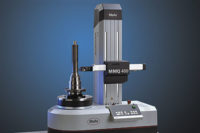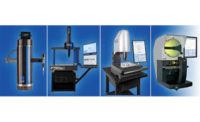Those familiar with the animated comedy The Simpsons may recall that Homer has a once long-lost brother named Herb. While making a valiant effort to pull himself from the gutter, Herb invents a device that will translate a baby’s cries into intelligible language that will tell parents exactly what the baby wants or needs. After a demonstration of the new device for the family, and before it has been unveiled to the world, Herb asks for Homer’s opinion. Homer responds, “I don’t know, Herb. People are afraid of new things. You should have taken an existing product and put a clock in it or something.”
Though fictional, this dialogue is an apt analogy for the current struggle in the product development cycle and for the quality engineer—time.
In The Simpsons example, Herb has followed the classic path summed up in Greek-philosopher Plato’s famous quote from his work Republic, “Necessity is the mother of invention,” meaning a need or problem encourages creative efforts to meet the need or solve the problem. Herb identified the need for parents to be able to understand the wants and needs of a child who cannot yet express said need or want and used his knowledge, business savvy, and countless hours of research to develop his device.
His devotion to the creation of his device mirrors many real-world, paradigm-shifting inventions. The Wright Brothers toiled for close to twenty-five years from their first inspiration to the first successful flight of their airplane. As said in National Parks Service literature, “This did not simply happen overnight. The brothers had been tinkering with the idea of flight off and on since childhood. They were mechanically inclined young men who were inspired by the efforts of others.”
Any discussions of Steve Jobs and the creation of the iPhone always touch upon the dogged pursuit and dedication of a lot of people. Author Brian Merchant said, “Jobs was a powerful source of inspiration, a fierce curator of good ideas and rejector of bad ones, and a savvy and potent negotiator. But the iPhone began as an experimental project undertaken without his knowledge, became an official project at the prodding of his executive staff and was engineered into being by a team of brilliant, unfathomably hard-working programmers and hardware experts. The issue was never with faith in his staff, and while there were certainly technical concerns — the embryo of the iPhone was basically a prototyped research project for a long, long time.”
Returning to The Simpsons example, Homer, however, has adopted the position of many consumers and product developers when contemplating the product life cycle—we need it now!
As author Mark Thomas explains, “Productivity is a key competitive element for any manufacturing operation. Do more in less time is an often recited production mantra.”
Read more of Mark’s article, “Boost Productivity with Video Technology,” and everything else we have to offer in this month’s Quality.
Enjoy and thanks for reading!
Darryl Seland,
Editorial Director




